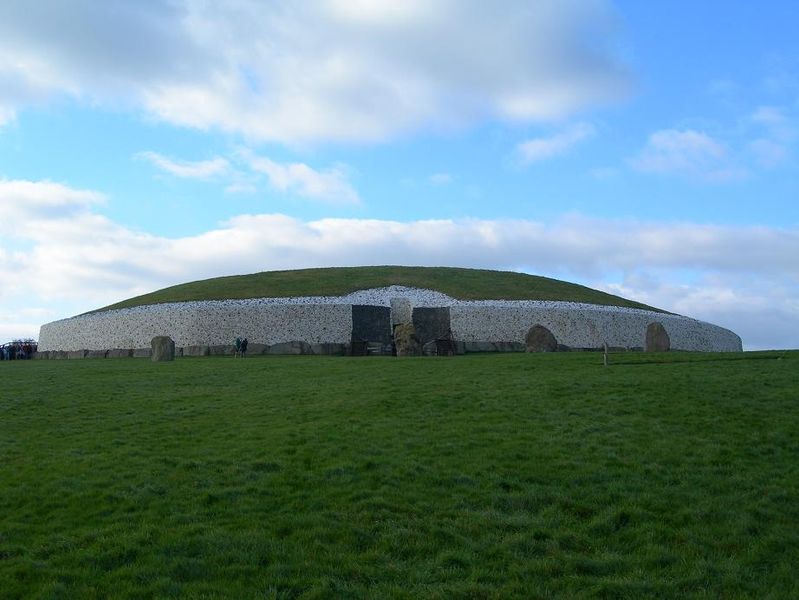To a lecture about New Grange, by Dr Liam Irwin of Mary Immaculate College, Limerick. It's a neolithic monument not far from Dublin, similar to the pyramids in scale, and a bit older (3200 BCE).

The lecture provoked the question, should archaeologists refrain from restoring ancient monuments? Perhaps they should just build a replica somewhere else instead.
The colour picture shows New Grange restored. The black and white picture shows how the entrance to New Grange looked in 1905. It turns out the restoration is controversial. The high wall should probably be a low sloping retaining wall. But Liam says there's little appetite to change it again. Knossos has the same problem apparently. Prof M J O’Kelly was responsible for the New Grange restoration. Not clear when the work was done, 1970’s?
It’s a tomb. There are 4 types of megalithic tomb in Ireland of which this one is a passage tomb. A chap called I think O’Callaghan stood up and dissented. Said it wasn’t a tomb at all. Perhaps the bones had been brought in by wolves in the modern period, he suggested. I suspect he is not to be taken seriously.
The building materials were brought by sea. Would have taken more than a generation to build. The architect wouldn't have lived to see it completed.
Their houses were flimsy, can only have lasted a couple of generations, but the tombs were permanent and must have diverted huge resources from agriculture and subsistence. Why did they do it? Religion? Belief in afterlife? Fear? Duty? Forced labour?
Gold Roman coins have been found on the site. How to interpret these? Left by Roman tourists, or by pilgrims? Are they evidence of strong connections between Ireland and Roman Britain?
Local buses run from Dublin. Must go there sometime. Maybe Cork Astronomy Club will organise another trip there someday. I missed the last one.
This was a lecture was given to Fermoy Field Club. Dr Irwin told us that Prof O’Kelly was his teacher.

No comments:
Post a Comment